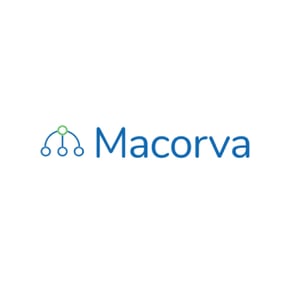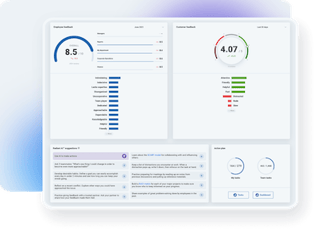
The 7 Benefits of Employee Engagement Software for Remote Workers
The remote workforce is growing faster than ever. In fact, a global study of full-time business professionals found that 70 percent of employees work at least one day a week remotely, while 53 percent work remotely for half of the week or more. Further research has revealed that how often an employee works remotely impacts employee engagement. Some interesting findings have noted:
- 79% of managers feel their team is more productive when working remote/hybrid.
- Employees who work remotely 60-80 percent of the time tend to be more highly engaged, while, interestingly enough, those who work remotely 100 percent of the time are among the least engaged of all employees.
Employee engagement software plays a particularly valuable role in improving and maintaining employee engagement among remote workers. Engagement software addresses the challenges many remote employees face, such as feelings of isolation, a lack of visibility, and limited communication. Here are seven ways employee engagement software benefits remote employees:
Gives Them a Voice
Remote employees often feel out of step with the rest of the team. They may work in a different time zone, making it hard for them to feel involved or that they have equal say in decisions that affect the team. For example, remote employees can miss out on a quick straw poll in the office when the team decides on a course of action for a project. They may also struggle with giving input because their work schedule is hours ahead or behind that of their on-site coworkers.
A company-wide employee survey platform gives remote employees a chance to make their voices heard, allowing them to weigh in and share their experiences. Having a regular opportunity to express concerns about team dynamics or share feedback about a specific work relationship can give remote employees the peace of mind that comes with knowing they’re not forgotten. As with all employees, remote employees feel empowered when they see a link between their feedback and workplace outcomes.
Provides Valuable Feedback
Remote and on-site employees alike benefit from employee feedback. Research cited in the Harvard Business Review found that performance feedback is one of the best ways to create a culture in which employees can thrive. However, remote employees may not always get the full spectrum of feedback they need to be effective, because they don’t have a lot of face-to-face time with others. They typically can’t swing by the manager’s office to get feedback on a conversation they’ve just had with a client, nor is it easy for them to get just-in-time coaching over coffee right before they give a big presentation.
Employee engagement software provides a way for remote employees to get the feedback they need to thrive. And it’s feedback they wouldn’t get from the traditional performance review. Employee survey software can collect feedback so that every employee receives 360-degree feedback from managers, peers, coworkers, and individuals from other departments. With the benefit of feedback from others, remote employees are in a better position to capitalize on their strengths and address areas for development.
Provides Recognition and Visibility
Research by IBM’s Smarter Workforce Institute found that employee engagement levels are almost three times higher for recognized employees than for those who don’t receive recognition. However, recognition for remote employees may not come as naturally as for employees who are more often physically present. Remote employees might be working hard and achieving results, but they can fall victim to being “out of sight, out of mind,” and therefore may not be fully visible to managers in the company beyond their direct supervisor.
Employee engagement software solves the problem of employees who lack visibility. Engagement software elicits insightful feedback from peers, subordinates, and cross-functional collaborators, helping remote employees get on the radar of leaders beyond their immediate team. By highlighting the remote “silent superstars” who receive positive feedback from peers and subordinates, employee engagement software helps senior managers see and recognize those employees for their contributions.
Supports Growth and Development
One of the myths about remote work is that it can lead to fewer opportunities for growth and development. However, growth opportunities are not only possible, but they are also sought by many remote employees. A study conducted by Catalyst found that 90 percent of high-potential employees with access to flexible work options have aspirations to advance to C-suite positions.
Research has found that employees with professional development opportunities are 15 percent more engaged than those who lack those opportunities. Employee engagement software supports remote employee engagement by providing deeper perspectives about how they work with others, which, in turn, supports development. When remote employees have feedback about their strengths and areas for development, they can then address those areas with the aid of targeted training, coaching, and mentorship.
Improves the Quality of 1:1 Discussions
Consistent one-on-one discussions have a great impact. Research has revealed that employees who have regular meetings with their managers are three times as likely to be engaged as employees who don’t. However, although remote employees receive performance reviews and may be having formal performance discussions, they may not be getting the regular one-on-one coaching and feedback that employees receive when they’re in the same office as their manager.
Employee engagement software provides qualitative and quantitative feedback that helps spur more fruitful one-on-one conversations—conversations that might not happen otherwise. Data from an employee feedback platform provides a 360-degree view of employee interactions, acting as an effective conversation starter with remote employees who need more visibility into their performance and relationships with others.
Supports Team Collaboration
Remote employees likely have plenty of access to collaboration platforms that allow them to interact with members of their team from anywhere. However, collaboration platforms don’t tell employees what they need to know about what’s working and what’s not when it comes to team dynamics and how well each member collaborates, shares, and supports others. Feedback delivered through employee engagement software supports better collaboration by helping all members of the team learn more about the behaviors they should repeat or avoid to support better team collaboration. For example, an employee feedback platform that allows team members to tag one another with attributes describing their ability to collaborate helps all employees learn how to better support and encourage one another.
Improves Employee-Manager Communication
A workplace survey found that two-thirds of managers are uncomfortable communicating with their employees, especially when it comes to giving direct feedback. A lack of communication with a manager is always undesirable, but it can spell disaster for remote employees who already have fewer opportunities for communication and less face time than their coworkers in the office. Insufficient communication can also have a negative effect on employee engagement, as it can lead to feelings of isolation.
Employee engagement software takes the discomfort out of communication by giving a manager and their employee access to the employee’s 360-degree feedback. This provides them both with a chance to discuss the feedback together, rather than putting them in the uncomfortable position of having the manager deliver secondhand feedback. By easing the communication between managers and employees, engagement software prevents remote employees from missing out on key discussions and opportunities to connect with their manager.
Although remote work has its challenges, it can offer rich opportunities for employees to grow in their engagement and make valuable contributions to company success. With the benefit of employee engagement software, remote employees can communicate, collaborate, and deepen their relationships with managers and coworkers.





